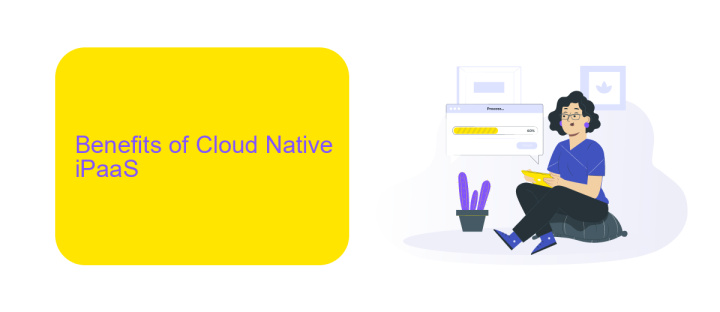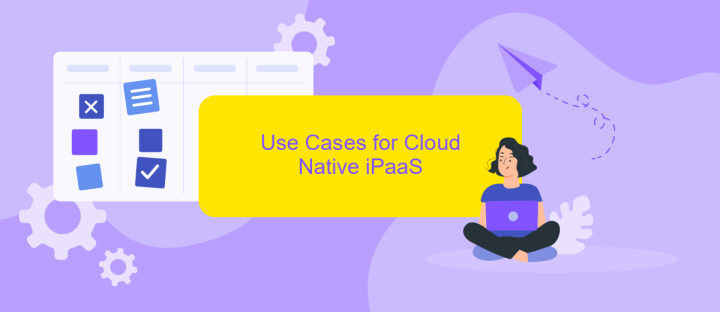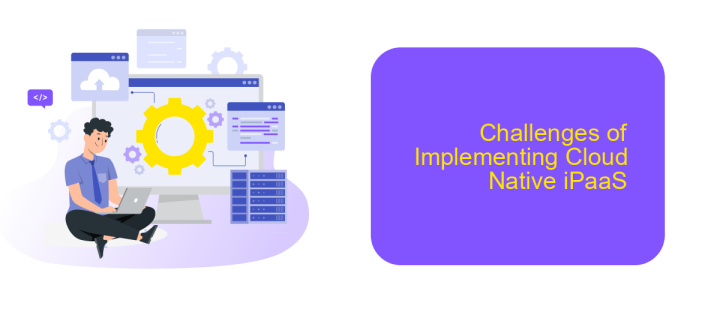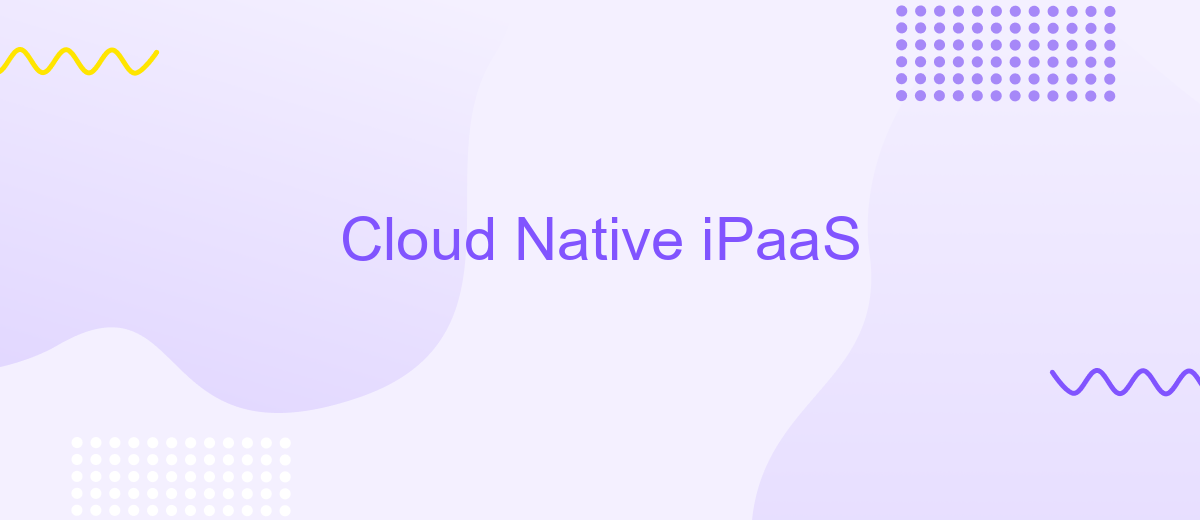Cloud Native iPaaS
Cloud Native Integration Platform as a Service (iPaaS) is revolutionizing the way businesses manage and integrate their applications and data. By leveraging cloud-native technologies, iPaaS offers unparalleled scalability, flexibility, and efficiency. This article explores the core benefits, key features, and transformative potential of Cloud Native iPaaS in modern enterprise environments, providing insights into how it can streamline operations and drive innovation.
What is Cloud Native iPaaS?
Cloud Native iPaaS (Integration Platform as a Service) is a modern approach to integrating various applications and services in a cloud environment. Unlike traditional iPaaS, which relies on on-premises infrastructure, Cloud Native iPaaS leverages cloud-native technologies to provide scalable, flexible, and efficient integration solutions.
- Scalability: Automatically scales with your needs, ensuring optimal performance.
- Flexibility: Easily integrates with a wide range of applications and services.
- Cost-Efficiency: Reduces operational costs by utilizing cloud resources.
- High Availability: Ensures continuous operation with minimal downtime.
One example of a Cloud Native iPaaS solution is ApiX-Drive. This service simplifies the process of setting up integrations between various applications, enabling businesses to automate workflows and improve efficiency. By using ApiX-Drive, organizations can quickly connect their cloud-based services without the need for extensive coding or technical expertise, making it an ideal choice for modern enterprises looking to streamline their operations.
Benefits of Cloud Native iPaaS

Cloud Native iPaaS offers significant advantages for businesses looking to streamline their integration processes. One of the primary benefits is scalability. As business needs grow, cloud native iPaaS solutions can easily scale up or down without requiring substantial infrastructure changes. This flexibility allows companies to manage costs effectively while ensuring optimal performance. Additionally, cloud native iPaaS platforms often come with built-in redundancy and high availability, minimizing downtime and ensuring continuous operation.
Another key benefit is the ability to quickly deploy and manage integrations. Services like ApiX-Drive simplify the process of connecting various applications and data sources, reducing the time and effort required for setup. This increased efficiency allows businesses to focus on their core activities rather than spending valuable resources on IT maintenance. Furthermore, cloud native iPaaS solutions typically offer robust security features, ensuring that data transfers are protected against unauthorized access and breaches. Overall, adopting a cloud native iPaaS can lead to more agile, secure, and cost-effective operations.
Use Cases for Cloud Native iPaaS

Cloud Native iPaaS solutions offer a wide range of use cases that can significantly enhance business operations. These platforms provide the flexibility and scalability required to integrate various applications and services seamlessly. With the rise of digital transformation, companies are increasingly relying on Cloud Native iPaaS to streamline their workflows and improve efficiency.
- Automated Data Integration: Cloud Native iPaaS enables businesses to automate data integration across multiple platforms, ensuring real-time data synchronization.
- API Management: Platforms like ApiX-Drive facilitate the management and integration of APIs, allowing for seamless communication between different systems.
- Real-Time Analytics: By integrating various data sources, Cloud Native iPaaS allows for real-time analytics, providing valuable insights for decision-making.
- Scalable Workflows: These solutions offer scalable workflows that can adapt to the changing needs of a growing business.
- Enhanced Collaboration: Cloud Native iPaaS fosters better collaboration by integrating communication tools and platforms, streamlining team interactions.
Incorporating Cloud Native iPaaS into your business strategy can lead to significant improvements in operational efficiency and data management. Services like ApiX-Drive further simplify the process of setting up integrations, making it easier for businesses to leverage the full potential of their digital ecosystem.
Challenges of Implementing Cloud Native iPaaS

Implementing Cloud Native iPaaS (Integration Platform as a Service) poses several challenges, despite its numerous benefits. One of the primary difficulties lies in ensuring seamless integration across diverse cloud environments and on-premises systems. This complexity often requires significant expertise and resources to manage effectively.
Another major challenge is maintaining data security and compliance. As data moves between various platforms, ensuring that it remains secure and complies with regulatory standards can be daunting. Organizations must implement robust security measures and continuously monitor for potential vulnerabilities.
- Complex integration across multiple environments
- Data security and compliance concerns
- Scalability and performance issues
- Vendor lock-in risks
Services like ApiX-Drive can help mitigate some of these challenges by providing a user-friendly interface for setting up integrations without extensive coding. ApiX-Drive allows businesses to connect various applications and automate workflows, reducing the complexity and time required for integration. However, it is crucial to thoroughly evaluate the service's capabilities and limitations to ensure it meets the organization's specific needs.
Best Practices for Implementing Cloud Native iPaaS
When implementing a Cloud Native iPaaS, it's crucial to prioritize scalability and flexibility. Start by choosing a platform that supports a wide range of integrations and can easily adapt to your evolving business needs. Ensure that the platform you select can handle varying workloads and offers robust monitoring and logging capabilities to maintain optimal performance. Additionally, leveraging microservices architecture can enhance your system's resilience and scalability.
Another best practice is to streamline your integration processes using tools like ApiX-Drive. This service simplifies the setup of integrations between various applications, automating workflows and reducing manual intervention. ApiX-Drive's user-friendly interface and extensive library of pre-built connectors can significantly speed up the implementation process. Moreover, ensure that your iPaaS solution includes strong security measures, such as data encryption and regular compliance checks, to protect sensitive information and maintain regulatory standards.
FAQ
What is Cloud Native iPaaS?
How does Cloud Native iPaaS differ from traditional iPaaS?
What are the key benefits of using Cloud Native iPaaS?
How can businesses implement automation and integration using Cloud Native iPaaS?
Is Cloud Native iPaaS secure for data integration?
Apix-Drive is a universal tool that will quickly streamline any workflow, freeing you from routine and possible financial losses. Try ApiX-Drive in action and see how useful it is for you personally. In the meantime, when you are setting up connections between systems, think about where you are investing your free time, because now you will have much more of it.

